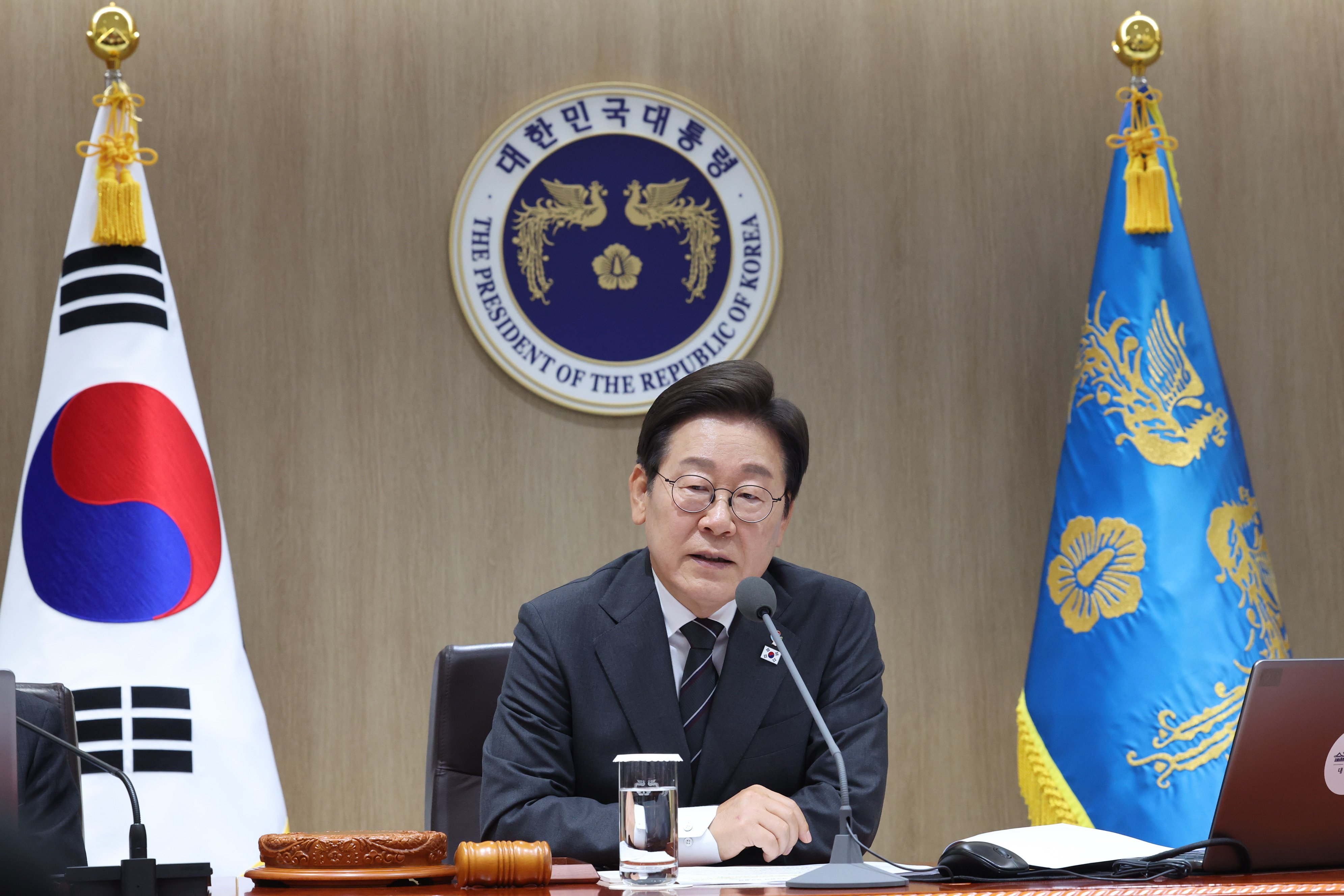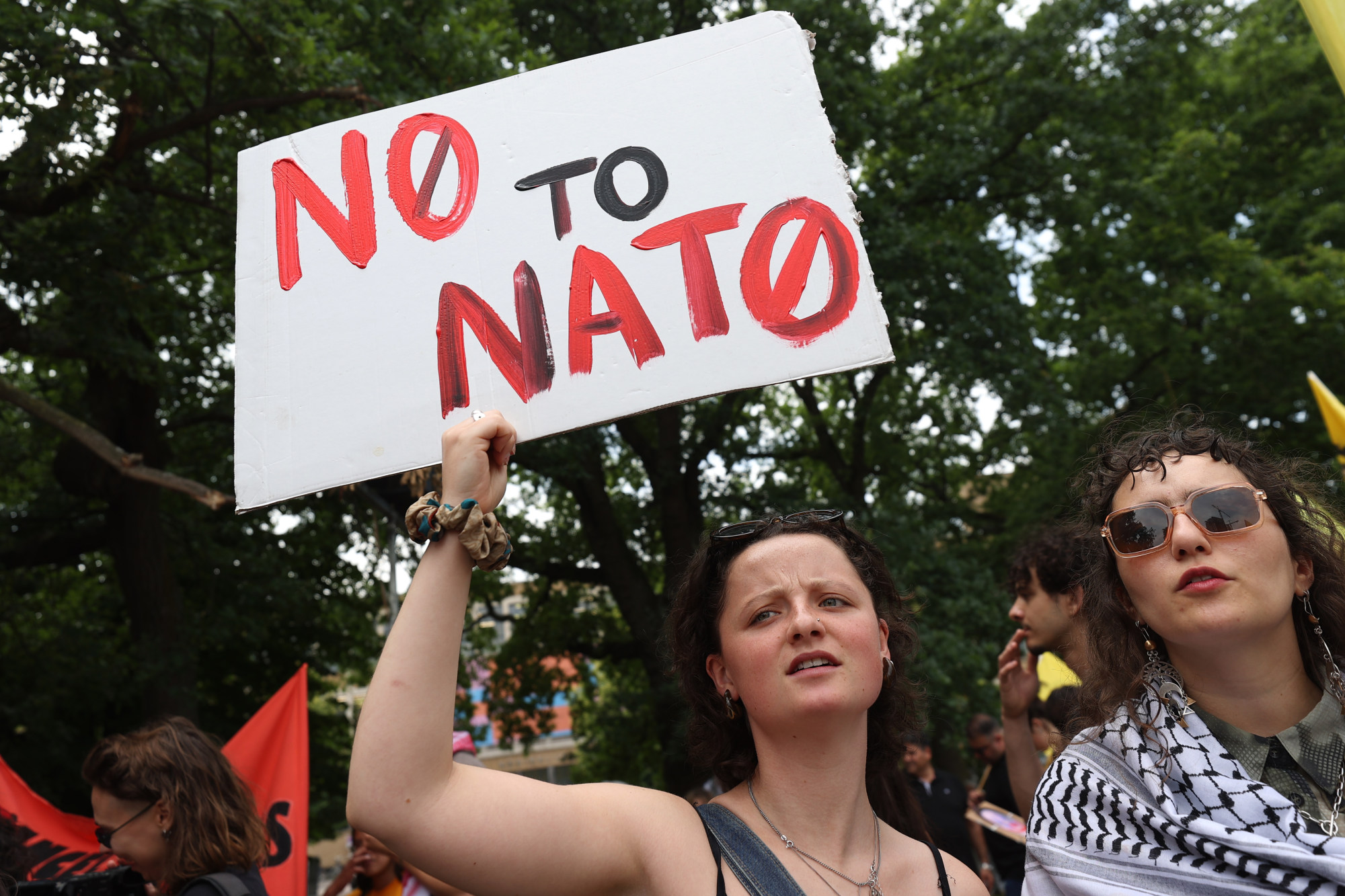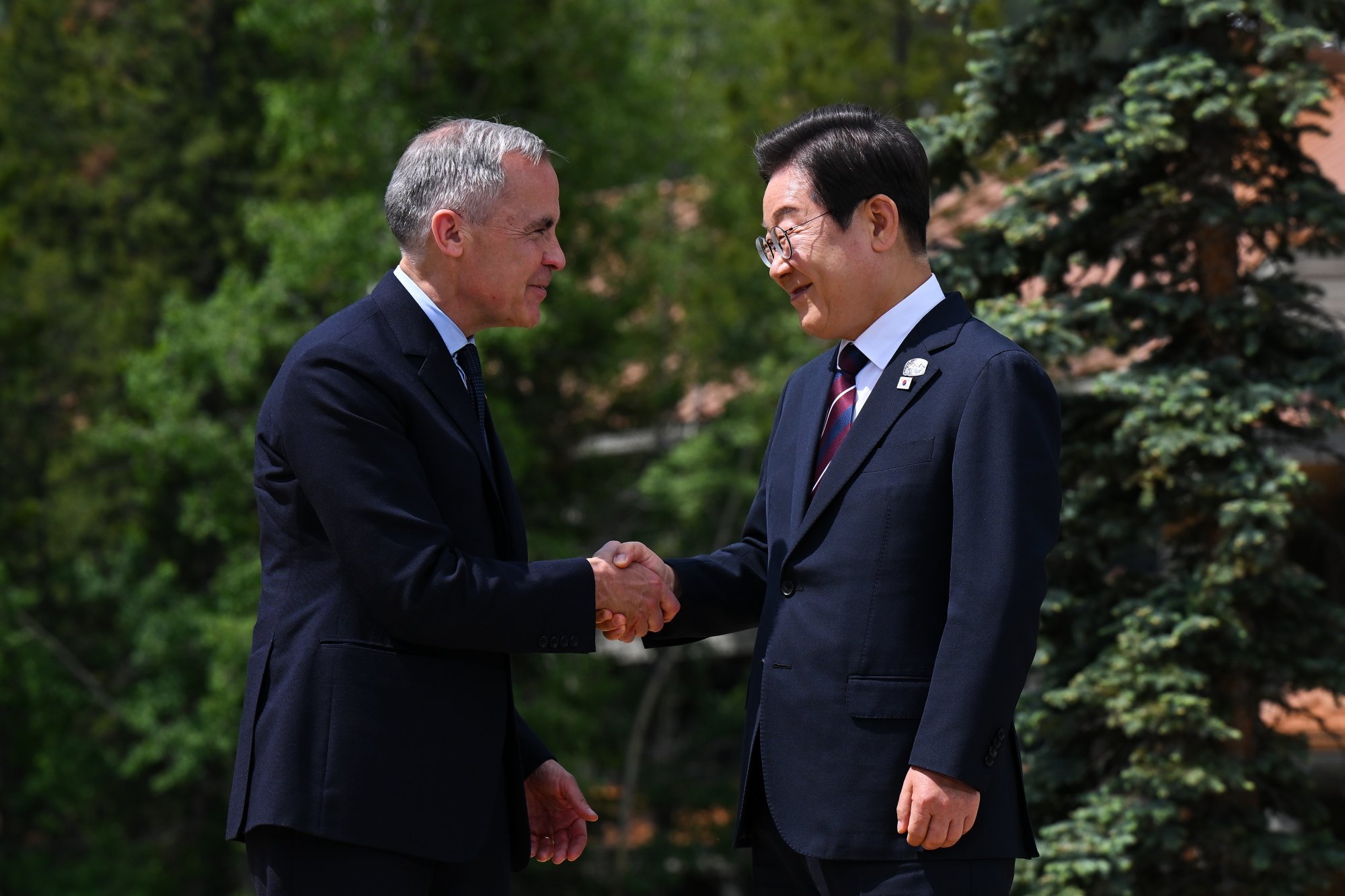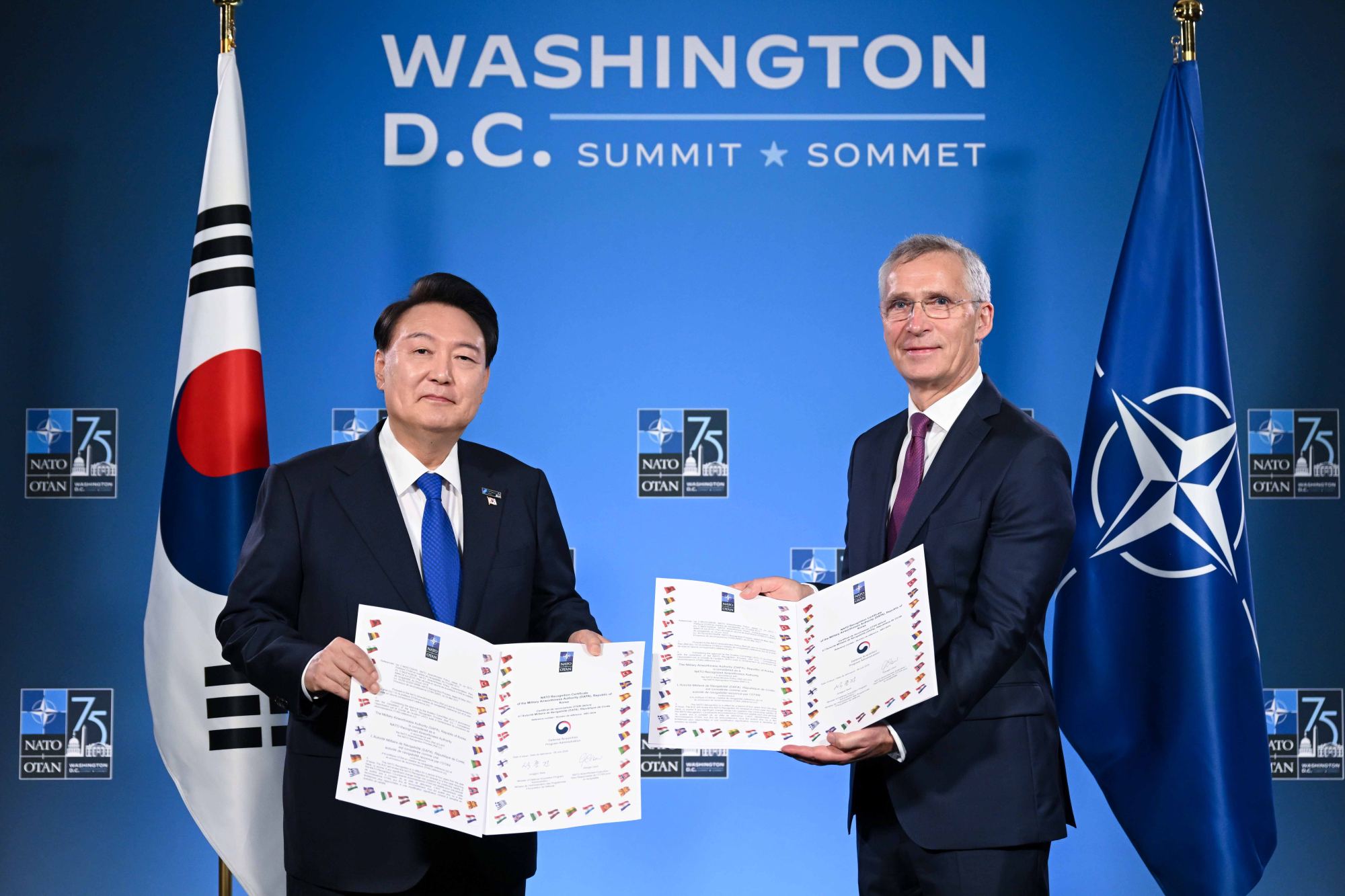South Korea’s Nato no-show: pragmatism or diplomatic shift?
While some see a tactical move, critics fear the no-show might undermine Seoul’s ties with Western allies and signal a broader reorientation

With the Middle East in turmoil and his own government barely weeks old, South Korean President Lee Jae-myung has opted to forgo this week’s Nato summit in the Netherlands – a move that analysts say shows the shifting sands of regional diplomacy.
Unlike his conservative predecessor, Yoon Suk-yeol, who attended the transatlantic security alliance’s summits three times in as many years, Lee’s expected Nato absence has prompted speculation over Seoul’s diplomatic intentions. Observers warn against reading too much into the move, however.
“President Lee would have attended the Nato summit but for the US bombing of Iranian nuclear facilities,” Lim Eul-chul, an international relations specialist and professor at Kyungnam University’s Institute for Far Eastern Studies think tank, told This Week in Asia on Monday.
“It would be reading too much into it to see this decision as a signal to China or a shift in South Korea’s diplomatic calculus under the new government,” Lim added, noting that the Lee administration was still formulating its regional and global strategies.
But other observers cautioned that optics matter when it comes to geopolitics.

Lee might have been concerned “that a strongly worded joint statement could offend China”, suggested Leif-Eric Easley, a professor of international studies at Ewha Womans University in Seoul.
The South Korean president’s decision was also likely motivated by the fact that “Trump’s attention [is] focused on Iran and allied defence spending, rather than on a tariff deal with Seoul”, Easley said.
Lee’s office announced on Sunday that he would not travel to The Hague for the summit, scheduled for Tuesday and Wednesday, after weighing the deteriorating Middle East situation and urgent matters at home.
He had initially considered attending, hoping for talks with US President Donald Trump on trade and security. But the intensifying conflict between Iran and Israel ultimately shifted Seoul’s calculus.
“Despite numerous pressing state affairs following the president’s inauguration, the government had actively considered President Lee’s attendance at the Nato summit,” presidential spokeswoman Kang Yu-jung said in a statement.
“However, after comprehensively reviewing various domestic matters and the volatile situation in the Middle East, the president decided not to attend.”
South Korea would have had limited opportunity to shape the agendaLim Eul-chul, Institute for Far Eastern Studies
Over the weekend, the United States carried out precision air strikes on three Iranian nuclear facilities, an operation Trump hailed as a “spectacular” success that “obliterated” Tehran’s uranium enrichment infrastructure. Denouncing Iran as “the world’s No 1 state sponsor of terror” and “the bully of the Middle East”, Trump warned of further US action should Iran fail to pursue peace.
Lee had been undecided on attending the Nato summit until the latest Middle East developments tipped the scales, according to Lim and other analysts.
“With the summit expected to focus heavily on the Middle East crisis, South Korea would have had limited opportunity to shape the agenda,” Lim said, adding that a bilateral meeting with Trump was unlikely given a packed schedule.
Lee had also hoped to meet the US president on the sidelines of last week’s G7 summit in Canada, but that meeting was scrapped after Trump’s abrupt return to Washington amid escalating hostilities between Israel and Iran.

Domestic considerations also played a decisive role, according to Lee Jun-han, a political-science professor at Incheon National University.
“With urgent issues at home, including cabinet appointments and economic recovery, President Lee simply couldn’t justify the trip,” he said. “And with the summit dominated by the Iran-Israel conflict, there was no certainty he would even meet Trump. Otherwise, he likely would have gone.”
The opposition People Power Party criticised Lee’s choice, urging him to attend and reaffirm South Korea’s alignment with democratic allies.
“In countries that share our liberal democratic values – such as the United States, Japan, and Europe – there’s growing sentiment that President Lee’s attendance would serve as a litmus test of South Korea’s position,” party spokesman Jung Gwang-jae said in a statement.
Easley said that Lee, who has expressed interest in improving ties with Beijing, might seek to engage Chinese President Xi Jinping at the Apec summit in Seoul this autumn.
He added that Lee had so far exercised rhetorical restraint regarding North Korea, showing interest in confidence-building but avoiding rushed engagement – mindful of the nuclear threat Pyongyang poses, as well as its intransigence and opportunistic ties with Moscow.

Looking ahead, Easley emphasised the need for South Korea to “deepen trilateral cooperation with the US and Japan, further engage Nato” as one of the alliance’s Indo-Pacific (IP4) partners, and relaunch the New Southern Policy “to strengthen ties with Southeast Asia and India”.
He further warned that Russia’s role further complicated the regional picture. It was “no coincidence” that Moscow had hosted Iran’s Foreign Minister Abbas Araghchi after the US strikes, or that Putin dispatched top defence official Sergei Shoigu to meet North Korean leader Kim Jong-un while G7 leaders gathered in Canada, Easley said.
“Russia’s coordination with Iran and North Korea shows how security across multiple regions is increasingly linked”, Easley said.
“Putin and Kim currently need each other for illicit trade in weapons, labour and military technology – and it’s highly likely there’s more going on behind the scenes than what they disclose.”
In response, Easley urged Nato and its Indo-Pacific partners to act “faster and more decisively to outlast Putin and Kim’s alliance of convenience by raising its costs”.
“The leadership of Trump and Lee is key for coordinating sanctions enforcement, intelligence sharing, and defence procurement,” he added, pointing to last week’s trilateral air drills involving US, Japanese, and South Korean fighter jets as a reassuring step in reinforcing integrated deterrence.
Japan, Australia also skip summit
On Monday, Reuters reported that Japanese Prime Minister Shigeru Ishiba was also planning to cancel his attendance at this week’s Nato summit, citing a source with direct knowledge of the matter.
Japanese broadcaster Fuji Television said Ishiba was cancelling the trip because a planned meeting between Nato and the IP4 would likely not take place, and because a meeting Trump was also unlikely.
Australia has also said its leader will not attend the Nato summit meeting.
Tokyo’s Foreign Minister Takeshi Iwaya would represent Japan, the source said, declining to be identified because the plan was not public.
Additional reporting by Reuters